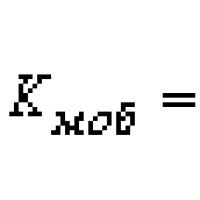Profession commercial agent. Sales agent: activities and responsibilities. What is the job of a sales representative?
42.7
Official partner of the section
Financial University
under the Government of the Russian Federation
A leading university in the field of training economists, financiers, and lawyers in financial law.
Do you want to become an economist?
Read about choosing a profession, specialties, admission conditions, the learning process and much more in the Economics and Finance section
For friends!
Reference
Each product or service is aimed at a specific class of consumers. With the development of industrial production and the advent of new technologies, the quantity of goods on the market has increased millions of times. It has become difficult for the buyer to navigate the choice. Sometimes a person needs a certain product, but does not know how and where it can be purchased. To make this task easier for the consumer, and for manufacturers not to lose clients, a class of specialists was formed. They are called commercial agents and pursue the goal of bringing producers and buyers together through commodity-money relations.
Demand for the profession
Quite in demand
Representatives of the profession Commercial agent are quite in demand in the labor market. Despite the fact that universities produce a large number of specialists in this field, many companies and many enterprises require qualified Commercial agents.
Description of activity
The work of a commercial agent is not as simple as it seems at first glance. This is a whole range of activities that are implemented using knowledge of the fundamentals of a market economy, methods of establishing business contacts, legislation and the current form of accounting and reporting. To carry out a purchase and sale transaction, a commercial agent must know the procedure for completing documentation. Also, in order to transport or store goods, a specialist must study the structure of loading and unloading operations. Typically, such specialists are invited to work in the commercial departments of various agencies or organizations.
Uniqueness of the profession
Rare profession
Representatives of the profession Commercial agent really rare these days. Not everyone decides to become Commercial agent. There is a high demand among employers for specialists in this field, so the profession Commercial agent has the right to be called a rare profession.
How users rated this criterion:What education is needed
Secondary vocational education (college, technical school)
To work in a profession Commercial agent, it is not necessary to have a higher professional education in the relevant specialty. For this profession, it is enough to have a diploma of secondary vocational education obtained from a college or technical school, or, for example, it is enough to complete special courses.
How users rated this criterion:Job responsibilities
Type of labor
Mainly mental work
Profession Commercial agent- This is a profession predominantly of mental work, which is largely associated with the reception and processing of information. In progress Commercial agent the results of his intellectual reflections are important. But, at the same time, physical labor is not excluded.
How users rated this criterion:Features of career growth
How to distinguish a successful commercial agent from a less successful one? Firstly, this is high-quality work from a specialist. This may include an increase in sales volumes and the number of customers, the absence of complaints and a reduction in the time it takes to sell goods and services. Secondly, this is experience working in a large company among professionals in their field. Well, and thirdly, it’s charisma and love for one’s work. Following these criteria, a commercial agent will certainly achieve career growth.
Career Opportunities
There are enough opportunities
The vast majority of representatives of the profession Commercial agent believe that they have enough opportunities for career advancement. If an ordinary specialist has such a goal, then it is quite possible for him to occupy a leadership position in this area.
How users rated this criterion:PROFESSIONAL QUALITIES OF A SALES AGENT
Sellers with a stony expression on their faces, sellers of the “soviet” type, soulless and dishonest sellers are becoming a thing of the distant past. There is already healthy competition for services in the sales market. At first glance: selling has become more difficult, buying has become easier. The buyer is able to choose the seller to whom he is willing to give his money. He has a choice. Sellers have become more polite and compliant. Sellers are interested in the fact that you buy the product from them, after making a purchase, come back next time or recommend it to others.
What should a sales agent be like to survive in today's market? What professional qualities should you have? What are the ideal requirements that such a seller, sales agent, or manager should have? The answer to the question: “Who are you?” is often more important to the client than your technical knowledge. Because it is the answer to this question that will help a potential client decide: does he want you to help him make his life better? The client buys you first. And only then your product.
Perhaps the most basic qualities that can be identified in the most successful sales agents are: strength of intention, self-confidence, the ability to listen to the client, and a developed sense of humor.
Indeed, a good sales agent loves his job. Selling is passion, love. If there is no passion, then you are professionally unfit. Every visitor you see on the horizon of your business should give rise to the desire in you “He will be mine!”, just as passionately as you sometimes desire a woman or a man. You must have a clear goal of what you want and persistence in achieving it. A good sales agent is always persistent. Persistence is a guarantee of success. A professional will not give up on his intention to conclude a deal until all possibilities have been exhausted. Intention involves persistence. Even if things are not going well for you yet, be persistent. Believe in yourself.
True professionals are constantly learning, they study throughout their lives, and attend various seminars several times a year. They hone their skills. When one successful sales specialist was asked what the key to his success was, he answered like this:
“I have a firm rule - every month to participate in one, even the most basic, seminar on trading issues. If I take away at least one new idea from the seminar, then I have not wasted my time and money on training.”
Once a student came to an elderly Teacher and proposed a competition: who could cut down the most trees in the forest in a day. The teacher agreed. Axes were clattering in the forest all day. Every hour the Teacher's ax fell silent for 10 minutes. The student was happy. He thought that the Teacher was getting tired and that he was winning, and he kept cutting down and cutting down trees, without stopping to rest. When the time was up and the results were summed up, it turned out that the teacher had cut down many more trees.
“How can that be?” he was surprised. Teacher, you rested often.
“No,” the Teacher answered him, “I was sharpening my ax.”
If you are afraid of a visitor, if you hesitate to call him, if you are afraid of refusal, you are professionally unsuitable for sales. Fear is a bad companion in trading. You need to differentiate between refusal of business cooperation and unwillingness to do business with you. The word “NO” that you hear is not said to you, but means a refusal of the proposed transaction. If you understand this, then you are a professional. You then begin to think about how you can make the presentation of the product differently or behave during negotiations. Ask yourself questions: “What did I learn from this experience? How can this be used in the future? Learn from your own mistakes.
A good sales agent believes in himself, in the quality of his product, and is ready to take calculated risks. He is a real warrior. Every failure only strengthens him, every answer “no” convinces him that victory will soon come. Truly: “Fight and seek, find and not give up.” Such agents use their own strengths to achieve success, rather than the weaknesses of competitors or clients.
A good salesperson knows how to ask open-ended questions and listens to the client, gently guiding the conversation in the desired direction. Customers trust more those sellers who are able to understand their problems and are able to listen to them. The main task of a sales agent is to research the problems of his clients, advise them on the problem and help them find a solution.
Humor allows you to be as flexible as possible in your behavior and quickly adapt, establish informal relationships, and take your temporary failures lightly. Stiffness, a sense of self-importance, a desire to command - make you professionally unsuitable. Avoid these qualities, work on yourself. Contact a psychologist, he will help you understand and... change.
Finally, the following test will allow you to evaluate both your professional qualities and the qualities of your employees. Answer the questions by rating yourself on a 10-point scale.
As a rule, when making my sales, I:
1. I am determined and believe in my own strength.
2. Honest in relationships with clients.
3. I love my job.
4. Focused on achieving your goal.
5. I behave and dress like a professional.
6. I know how to listen to the client and ask open-ended questions.
7. I can accurately formulate what my client wants.
8. Ready to listen to the client’s doubts/objections.
9. I am not offended if one of the clients says “no”.
10. I easily make phone calls to potential clients I don’t know.
11. I realize my weaknesses and work on myself.
12. Willing to take calculated risks.
13. Initiative and enterprising.
14. Ready to implement new ideas.
15. I work measuredly and professionally, and don’t “burn out at work”
16. I make sure to keep all my promises and remember the requests of clients.
17. I think about the needs of my clients and take them into account.
18. My goodwill is manifested in my demeanor and facial expression.
19. Confident in the merits of your product.
20. Attentive (I hear what others say and what they don’t say).
Calculate your total points.
If you have more than 160, then you can be congratulated: your clients are crazy about you, you can already teach others how to sell.
If it’s 120-160, then that’s also a good result, although there are still unused resources. It is useful for you to attend training seminars.
If it’s 50-119, then further serious work on yourself is needed.
If you score less than 50 points, then you should look for another job.
© Pavel Barabash [email protected]
Reviews
In my life I had the opportunity to work as a sales representative for 15 years. And, as a former specialist in this field, I will say without reserve: those who want to fully devote themselves to this profession should know other aspects of a specific craft. Working on yourself every day, honing your sales skills, can go too far. Yes, commodity experts and sellers can be examined like an X-ray, and, depending on a given situation, the order can be adjusted (in their interests). Your clients become so... loyal to you that they don’t “fall for” the lucrative offers of other people’s sales agents, and work with your company for years. Such an acquired gift is very useful in work, but in life, sometimes it turns on unexpectedly for you, bringing disappointment in some person.
Pavel, I described this quality of a sales representative in the article “On the way to exteriorization.” Perhaps my confession may seem too fantastic, but there is some truth in any mysticism. Each of us stops at the step we expected or deserved!
Many people believe that a sales representative and an agent are one profession. This misconception is a consequence of the fact that in many enterprises these professions are combined into one. However, in reality, more tasks are performed by the sales representative. An agent acts as a seller of goods from one or more companies under an agreement with them. Let's take a closer look at this profession.
What does a sales agent do?
This profession is quite specific. The job of a sales agent is to establish mutually beneficial cooperation. Simply put, this specialist connects wholesalers and retailers. To achieve his goal, he should make some efforts. In fact, he must convince the enterprise to purchase from this supplier and not from another. In this case, the sales agent uses various tools. This could be some kind of discount system, deferred payments, special delivery conditions, and so on.
Classification
There are the following types of sales agents:
- Upon delivery.
- Upon receiving orders.
- Visitors.
- Informants (explain the advantages of products).
- With technical knowledge (they are usually consultants to the company).
- For the sale of rarely purchased material products (encyclopedias, for example).
- For the sale of intangible assets (education, advertising, insurance).
Specifics of the profession
Sales agents are people with minimal experience. As employers note, there is a high turnover of such personnel in the labor market. The fact is that many specialists quit quickly, unable to withstand the high intensity of work. To achieve success in this profession, you need to put in all your strength and all your time. The main qualities of a sales agent are activity, determination, communication skills, the ability to quickly make important decisions, and a creative approach to the client. This profession is for those who enjoy communicating with people, who are attracted by the prospect of high income and the opportunity to realize their potential.

Trading agent: job description
Every day of a specialist begins with a planning meeting. It discusses what has already been done and tasks that should be implemented. Each sales agent has his own plan - the norm. For example, at least five contracts must be concluded per week. After the planning meeting, the specialist arms himself with price lists and creates a route for the day. The active activity of sales agents continues until approximately 15:00. Before this time, it is more likely to conclude the necessary contracts. Each specialist has more than a hundred points in the database. You need to travel around most of them in a day. Having your own car will be a big plus. The main duties of an agent are:
- Collection of applications.
- Monitoring the fulfillment of obligations.
- Collecting money.
In addition, the sales agent constantly comes up with and develops schemes, thanks to which various agreements are formed between clients. This could be different promotions, “shelf buyback” (part of the counter is occupied by a certain product category), and so on.
Responsibility
The sales agent monitors the fulfillment of the obligations of the parties - the supplier and the buyer. This means that his tasks also include collecting payments. For example, the goods have been delivered, but the client says that payment can only be made in the evening. The sales agent waits for the allotted time and goes to collect the money. Thus, his day can end at 6, 8, or even 10 pm. It should be remembered that a sales agent is a financially responsible person. This is mentioned in the contract that he concludes with the employer. The specialist bears property liability for shortages, unpaid deliveries on time, etc.

Paths to obtaining a profession
Many young people are interested in how to become a sales agent. You can get a profession in different ways. However, the first condition is the presence of secondary education. The second mandatory circumstance is age. By law, a minor cannot be a sales agent. This is due to the fact that the profession is associated with money circulation and financial responsibility. Sales agents are trained by special educational institutions. You can get a profession at an educational institution that trains sales specialists. In addition, some educational institutions that provide knowledge from other areas provide the opportunity to receive additional training.
Employers' opinions
Many employers believe that specialists do not need any special training. A sales agent learns all the necessary skills in the process of performing assigned tasks independently. There is, however, another opinion. Employers, in particular, note that all the tasks that a sales agent performs, the responsibilities, capabilities of a specialist, as well as the intricacies of communicating with clients and establishing interaction between them require careful explanation. Employee training, in the opinion of these employers, is a rather serious process. They believe that every sales agent should undergo training. The duties of a specialist require not only creative, innovative thinking, but also certain knowledge. In particular, employees must understand many of the psychological subtleties of human nature, technical characteristics of products, requirements for drawing up contracts, and so on.
Blueprint for success
There is a certain model - 10 steps of a sales agent.

This scheme includes the following points.
- Preparation, planning, goal setting. Before visiting retail outlets, the agent reviews his notes, plans a route for the day, and collects all the necessary documents.
- Inspection and analysis (external and internal) of CT. these actions involve direct communication with the responsible persons of the retail outlet, withdrawal of balances, and the formation of a new application.
- Establishing contact. At this stage, it is important to present yourself competently. When communicating, it is important to know the topics and problems that are relevant to a given enterprise.
- Establishment and formation of needs. Using his communication skills and information about trade turnover, the agent offers this or that product. He asks the client questions to find out what is most relevant at the moment. During the conversation, it is important to listen carefully to the person and correctly draw conclusions.
- Presentation. During it, the agent talks about the product and the benefits of purchasing it. This is especially important when introducing new products to the market. It is advisable to have a sample of the product so that the client can visually see the product.
- Work with objections. Customers are not always ready to purchase a particular product (especially something new that has never been available at their outlet). So of course they start objecting. In this case, the agent must listen carefully, without interrupting, to all the client’s arguments. Most of them have no practical basis and are a consequence of normal fear of the risk of losing money. The agent must cut out false conclusions and leave those objections that have real significance. After this, the specialist tells how to solve this or that problem that, in the client’s opinion, may arise. It's important to be convincing here.
- Completion of the transaction. If all the previous stages brought positive results, then we can consider that the contract has been concluded. However, the agent must first consolidate his success by using “closing”, leading questions (for example, “Are we signing a contract?” or “For how long are we entering into a contract with you?”).
- Merchandising. One of the prerequisites for a successful sale is the correct placement of goods on the counter. The sales agent must know how to place products on shelves so that they arouse consumer interest.
- End of the visit. At this stage, the necessary documentation is drawn up, the details of cooperation are clarified, the terms and form of delivery, and the payment procedure are agreed upon.
- Analysis. It includes an assessment of the amount of time spent on the visit, the level of achievement of set goals (scope of the contract), and other things. Based on the analysis, goals are set for the next visit to the outlet.

Automation
Over the past few years, companies that rely on the work of sales agents have established a close relationship between them and their own managers. The main equipment in this case is a laptop computer or mobile terminal. Using specialized software, the manager transmits the necessary information about clients, products, and business processes to agents. The product description is usually supplemented with images and recommendations for its promotion. Thus, the agent becomes a kind of expert. One of the main advantages of an electronic catalog is the ability to quickly change information. For example, a manager had an idea about promoting a product more effectively. On his computer, he makes the necessary adjustments, which he transfers to the agent’s device. Customer information changes in the same way. At the same time, the agent receives all available information about suppliers and buyers, including shipment limits, debts, advances, management of retail outlets, and organizations through which accounting transactions are carried out.
Strengths of a specialist
The following qualities are important in the work of sales agents:

Advantages of the profession
Sociability, energy, optimism and other positive qualities are liked by others. Typically, a sales agent is the soul of any company. His creativity and creative approach make communication with him exciting and positive. In addition, sales agents have the ability to quickly find a way out of problematic situations. They are distinguished by their responsiveness and willingness to help.
Negative sides
As with any business, there are downsides to being a sales agent. Often people set themselves impossible tasks. Many agents tend to push their limits when planning their day. However, given the transience of time and the need to pay maximum attention to each client, they do not have time to accomplish everything they wanted. As a result, under the influence of physical and emotional stress, they experience stress. This hinders not only the implementation of the plan, but also the solution of pressing life problems. As a result, such people often quit very quickly. Having settled in another company, they will certainly encounter the same problems.

To succeed, you need to be able to deal with emotions, take work seriously, and also adequately assess your strengths. The situation must always be under control. The profession also has medical contraindications. Such activities are not recommended for persons with cardiovascular pathologies, chronic diseases of the musculoskeletal system, central nervous system, mental disorders, hearing, vision and speech defects.
Conclusion
Sales agent services are becoming increasingly in demand today. At the same time, there are no priorities regarding gender. As employers themselves note, both have both disadvantages and advantages. For example, girls, as a rule, are less creative, but have a serious approach to work. Young men, on the contrary, more often use a creative approach, but are often lazy. Professional risks include financial liability. However, it is inevitable, since the specialist works with money and must also ensure the timely receipt of funds to suppliers.
Personal qualities of an agent Attracting, selecting and training sales personnel is a rather complex problem for a modern enterprise that is market-oriented in its activities.
The main person providing personal sales is the sales agent (sales representative). He identifies potential buyers, establishes direct relationships with them, conducts sales and organizes service, and also collects and analyzes trade information. The work of an agent is multifaceted and difficult.
The work of an agent is associated with psychological overload and stress. One reason is that the sales agent is on the road for days, meeting many people, and away from family. The second is that if a salesperson is not sufficiently trained in effective customer communication techniques, he will tend to equate a potential customer's refusal of a product with a refusal given to him as an individual. With a lack of psychological training, this can lead him to a depressed emotional state.
Although it is very difficult to identify all the qualities necessary for successful sales, there are several that a sales agent certainly needs to have.
1. The most important quality is self-confidence. It is absolutely necessary that a sales agent have a strong sense of self-confidence and be able to withstand serious psychological stress without damage to the psyche. He must offer his product again and again, despite numerous refusals from potential buyers. On the other hand, it is important that self-confidence does not develop into complacency. Otherwise, he will seem arrogant to the client and will be rejected as a result.
2. The next necessary quality is the ability to think analytically. A sales agent works in the office of a potential consumer, his goal is to solve the problem of the potential buyer. He must be able to analyze all aspects of the environment and identify the best way to solve a problem. It often happens that a sales agent cannot understand what the problem is and makes the wrong move, which leads to failure. Debt analysis process
Part II. Management at the instrumental level
wives be supported by a preliminary telephone call to ensure agreement and initial information about the client's needs.
3. There is such a thing as a creative approach, i.e. the ability to find a non-standard solution. The sales agent will need creativity to understand the nature of the problem, price, financial issues, product design and other elements necessary to close the deal. However, this does not mean at all that he should go beyond the company’s policy and develop solutions that are unacceptable from its point of view.
4. A special role is given to the agent’s ability to plan his actions and follow the developed plan. Planning is a process that requires assessing all available aspects of a problem, developing a strategy to solve it and achieve the goal. Next, the agent must mobilize the resources necessary to carry out the plan. Anyone who can make a plan, but is unable to attract resources and carry it out, is more of a dreamer than a man of action. This requires not only discipline, but also some organization of the mind. It is therefore necessary that the sales agent be trained in drawing up plans and consciously monitoring their implementation. The easiest way is to make a list of urgent matters in order of importance, and then work on it.
5. A sales agent must have such a skill as the ability to persuade. A skilled sales agent is usually an extrovert. This means that he is sincerely interested in meeting and communicating with other people.
But this is not enough. By his manner of behavior, clothing, verbal and non-verbal methods of communication and other related actions, he must convince the potential client of the reliability of the product and the seriousness of his intentions. By being able to create a favorable impression, the salesperson has a greater chance of completing a transaction with the client.
6. The agent must be able to empathize with the client, i.e. understand the client’s situation and view your call and subsequent visit with the product offer from the client’s point of view. Maybe the customer has a complex technical problem or financial problem, or perhaps he is worried about what his manager will say about purchasing a product. The agent should ask himself these and other questions and try to answer them for himself and the potential consumer by presenting him with options for solving each dilemma.
7. An agent must be a good listener to determine what a prospect wants before telling him everything he can about his product and then convincing him to buy it. There are two reasons for this:
1) this is a sign of politeness;
Chapter 7. Marketing Communications Management
2) a very effective way to find out what problems a potential client is experiencing and correctly formulate the possibility of solving the problem with the help of the product offered for sale.
Professional skills of an agent In order to achieve a complete understanding of the client, a sales agent, in addition to personal ones, must have certain professional skills.
1. The agent must know almost all the characteristics of the product. If he, while performing his duties, is unable to answer any questions or gives incorrect information, this will have a very detrimental effect on the relationship with the client, who is inclined to consider him as an expert in the field. At the same time, the client may be competent enough to ask the sales agent questions to which he cannot always find an answer. Thus, it can be considered imperative that the hired sales agent undergoes intensive training on the purpose and functions of the product, the stages of its production, all the technical aspects associated with it and how the product is intended to solve the client's problems.
2. The agent must be aware of the advantages of his product, since he is obliged to emphasize them in every possible way, as well as the disadvantages, since not only the client, but also the company’s competitors will try to find weaknesses in it. Almost all products have disadvantages from the customer's point of view, and it is necessary that the salesperson can present them from a different angle and give an alternative view of them, as well as show a positive balance of disadvantages and advantages.
3. The agent must know everything about after-sales service, i.e. about the financial benefits and intricacies of the service offered by the company in order to make a worthy and acceptable presentation of the product to the client and establish contacts for the future.
4. A sales agent must have knowledge about the company for which he works: the history of its origin, basic information about management, prospects for its activities. Sometimes the client, not finding any shortcomings in the product that could motivate his refusal to purchase it, continues to ask the sales agent questions about the company, its history, and publicity. One of the most important issues that will certainly be raised in the conversation is the financial situation of the company. Although information about a company is in many cases confidential, there are a number of news agencies in the West that can provide basic information about its financial condition. Consequently, a meticulous client can learn a lot about the company's capabilities before
Auditor 1 general characteristics of the profession content of activities
DocumentUch., Cherdyn-PU No. 49. INSURANCE AGENT 1. Generalcharacteristicprofessions Contents of activity Acts on behalf of... Possible creation commercial insurance service. 6. Related professionsAgent supply, trade agent, teacher at...
General characteristics of early German romanticism school of ideas and images
DocumentBeliefs. 13. Generalcharacteristic American romanticism (W. Irving... modern “business” commercial England. Representing... and combining the work of an insurance company agent with painting, he says... a new profession- director. ...
Wholesale agent
DocumentComplexes. CAR DRIVER 1. Generalcharacteristicprofessions. Drives vehicles... marketing, merchandiser commercial services COMMERCIALAGENT 1. Generalcharacteristicprofessions. Establishes contacts between manufacturers...
GENERAL CHARACTERISTICS OF RICKETSIA AND RICKETSIOSES”
DocumentStages of study) Generalcharacteristic rickettsia and rickettsiosis... granulocytic ehrlichiosis ( agent HGE from... issue commercially available... professions. Based on these data, prompt anti-epidemic measures are taken. For complete characteristics ...
Chapter 1 general characteristics of insurance
DocumentBetween insurance agent and the insurer... INSURANCE § 1. Generalcharacteristic insurance contract Contract... in production and commercial activities, non-payments, ... and associations of certain professions. Professional liability insurance...
 Business Analyst - IT1410: Software Requirements Development - Business Informatics
Business Analyst - IT1410: Software Requirements Development - Business Informatics Assessment of the efficiency of use of fixed capital Analysis and assessment of the efficiency of use of fixed capital
Assessment of the efficiency of use of fixed capital Analysis and assessment of the efficiency of use of fixed capital The motive for learning activity refers to all the factors that determine the manifestation of learning activity: needs
The motive for learning activity refers to all the factors that determine the manifestation of learning activity: needs Job Description for Seller of Non-Food Products of Category I
Job Description for Seller of Non-Food Products of Category I The severity and intensity of labor: classification, indicators, factors. The criteria for the severity of labor under dynamic load are
The severity and intensity of labor: classification, indicators, factors. The criteria for the severity of labor under dynamic load are OKVED “tourism activities” - decoding New OKVED tourism activities
OKVED “tourism activities” - decoding New OKVED tourism activities What kind of profession is a laboratory assistant for chemical and bacteriological analysis?
What kind of profession is a laboratory assistant for chemical and bacteriological analysis?